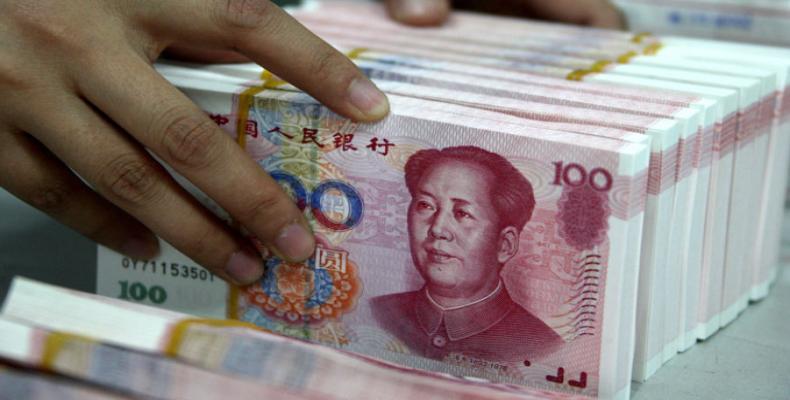Beijing, August 9 (RHC)-- Data on China’s trade this year surprised investors after global stock markets were seen to rise despite growing tensions in the U.S.-China trade war.
Chinese exports rose by 3.3 percent this July over the same month last year, decimating prior forecasts of a two percent decline. Additionally, the country's imports fell by 5.6 percent.
Markets went into a tailspin earlier this week after China let its currency weaken beyond 7 yuan per dollar, a surprise move that investors took as retaliation for U.S. President Donald Trump’s announcement of more tariffs on Chinese imports.
However, according to a statement of the Bank of China, the reasons for the devaluation are the unilateral and protectionist sanctions, as well as the announcement of additional tariffs on Chinese goods. "China is the victim of U.S. trade bullying," Zhang Yansheng, a researcher with the China Center for International Economic Exchanges said.
Last week, Trump announced that it will impose a 10 percent tariff on the remaining $300 billion worth of Chinese imports starting September 1st, after U.S. and Chinese negotiators failed to reach a final trade deal in Shanghai.
Investors fear the trade conflict between the world’s two biggest economies will cause a global recession. Bond markets have flashed red and a closely watched U.S. recession indicator reached its highest level since March 2007.
“There’s a little bit of calm back in the market at the moment,” Peter Kinsella, global head of FX strategy at UBP, told Reuters, “but the ball is very much in Trump’s court,” according to the U.K. analyst. It was the Trump administration that began the commerce feud last July with its biggest trading partner that Tuesday ceased to purchase U.S. agricultural products.
Vasileios Gkionakis, a strategist at Lombard Odier, said, “This most recent escalation in the U.S.-China trade clash has increased the risk of a complete fallout in the negotiations considerably.”
Gkionakis said the probability of a “deal breakdown” had increased to 40% from 25% previously.


